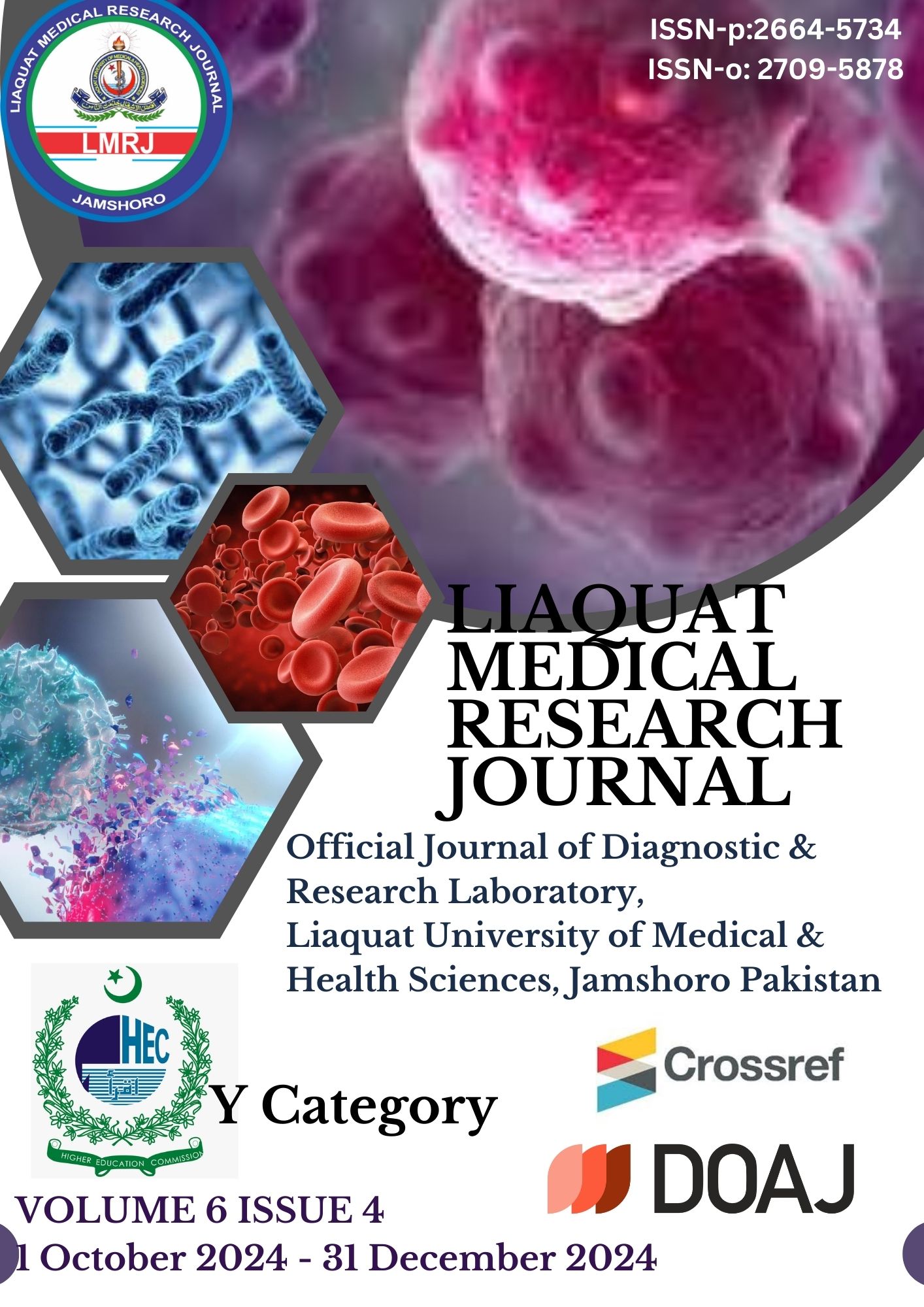The Changing Trends Amongst Patients with Colorectal Carcinoma Presenting at Medical Oncology Department, JPMC
DOI:
https://doi.org/10.38106/LMRJ.2024.6.4-03Keywords:
colorectal cancer, oncology, adenocarcinoma, colon, rectum, neoplasm, EpidemiologyAbstract
Colorectal cancer (CRC) is the second leading cause of death This cross sectional study was conducted including biopsy proved adenocarcinoma of colon and rectum patients at outpatient unit of oncology department at Jinnah Post Graduate Medical College (JPMC), Karachi, Pakistan. The mean age of the patients was 40 years (IQR ± 16 years). Majority were males patients accounting for 66%. Majority reported to have frequent vegetable intake (89.8%) and comparably lower processed food intake (69.9%). 92% patients reported to have sedentary lifestyle, 58% were smokers, and 8% were alcohol abusers. Majority of patients (96.6%) had no family history of colorectal cancer. Rectal adenocarcinoma is identified in majority of patient between age 18-40 years (n 70; 65.4%, p=0.004) and this age group often present with Grade III (n=45; 83%,p<0.001) and Stage III of cancer ( n 58; 66.7%, p= <0.001). More patients of the age group of 18-40 years had poorly differentiated cancer (n 48; 44%, p<0.001). Few patients in this age group were smokers (n=47; 46%, p 0.005) and had history of alcoholic intake (n 5; 35%, p = 0.038). In our study population the age group 18 years to 40 years had considerably higher rate of colorectal cancer as compared to older age groups. People younger than 40 years are being diagnosed with relatively more advanced and aggressive disease. This study also identified smoking as a potential risk factor in younger adults.

Downloads
Published
How to Cite
Issue
Section
Categories
License
Copyright (c) 2025 Sorath Bhutto, Sana Hashmat, Ghulam Haider, Abdul Rehman, Saima Zahoor, Shayan Ali Qazi, Areeba Qureshi

This work is licensed under a Creative Commons Attribution-NonCommercial-NoDerivatives 4.0 International License.
Copyright: Open access journal copyright lies with authors and protected under CC BY-NC-ND 4.0 licence (https://creativecommons.org/licenses/by-nc-nd/4.0/).









